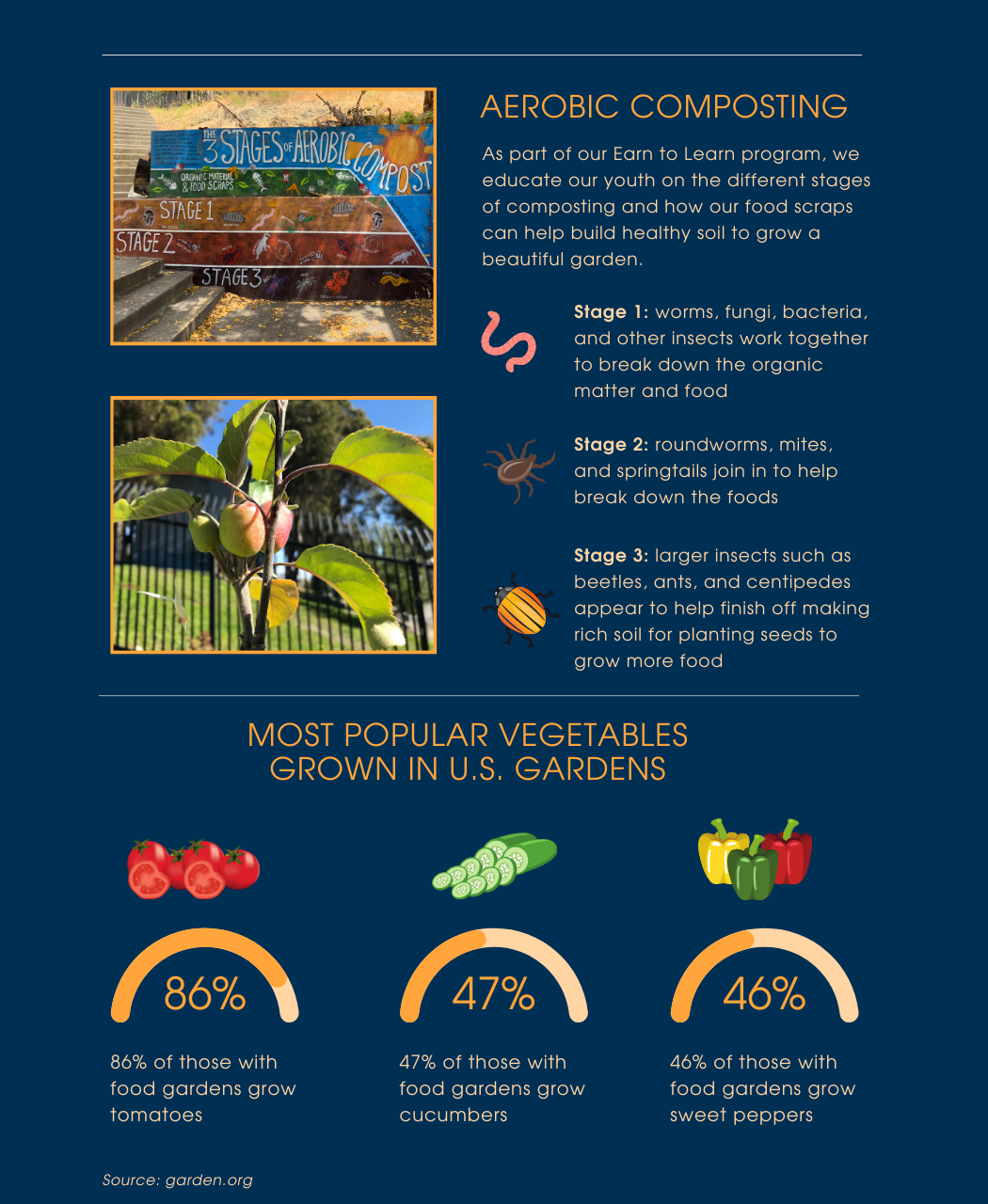City of Dreams’ Sustainability Journey
Did you know that an estimated 10 million tons of plastic are dumped into our oceans every year? Now more than ever, it’s essential to practice good habits of recycling and reducing our waste wherever we can. Over 50% of what we still throw in the garbage can be recycled through curbside and other collection types. Another 25% of our trash is comprised of food wastes and other materials that could be composted. So that leaves very little in our actual trash bin!
At City of Dreams, we teach our youth the importance of sustainability in all aspects– from eliminating waste to the different types of recyclable plastics and creating a sustainable food source in our community garden. It’s never too early to start teaching our youth about the importance of nurturing our planet.
Just around the corner of our community garden is our composting pile, where we throw in our food scraps with a mix of hay and trimmings. We compost aerobic style– the decomposition of organic matter using microorganisms that require oxygen. Our kids turn our soil where they also discover the different organisms that help break down our food scraps to help build rich soil for a healthy garden.
What’s the impact of composting?
Reduces greenhouse gases. Throwing our scraps into our compost pile minimizes the amount of trash sent to the landfill that would otherwise create more carbon emissions.
Enriches the soil with nutrients. This reduces the need for fertilizers and pesticides, which require fossil fuels for production.
Rapid plant growth. Studies have shown that plants grow more rapidly in soil supplemented with compost, meaning they can pull more carbon dioxide out of the air.
Often times our youth will look up to us and intake the little things we do. Creating good habits in our youth starts with ourselves. Let’s make sustainability the norm for our future generations!
Sources:
Cathey, Pahriya Ashrap and Amber. “Trash to Treasure: The Incredible Benefits of Composting: The Pursuit: University of Michigan School of Public Health: Environmental Health: Innovation: Nutrition: Pollution.” The Pursuit | University of Michigan School of Public Health | Environmental Health | Innovation | Nutrition | Pollution, University of Michigan School of Public Health, 19 Sept. 2019, sph.umich.edu/pursuit/2019posts/benefits-of-composting.html.
“Plastic Pollution Facts: PlasticOceans.org/the-Facts.” Plastic Oceans International, 4 Feb. 2021, plasticoceans.org/the-facts/.
“Reducing the Impact of Wasted Food by Feeding the Soil and Composting.” EPA, Environmental Protection Agency, 29 Oct. 2020, www.epa.gov/sustainable-management-food/reducing-impact-wasted-food-feeding-soil-and-composting#:~:text=Organic%20waste%20in%20landfills%20generates,higher%20yields%20of%20agricultural%20crops.



